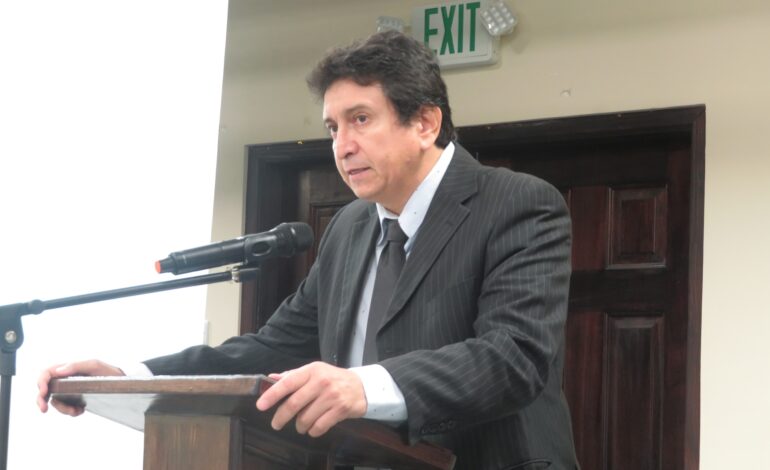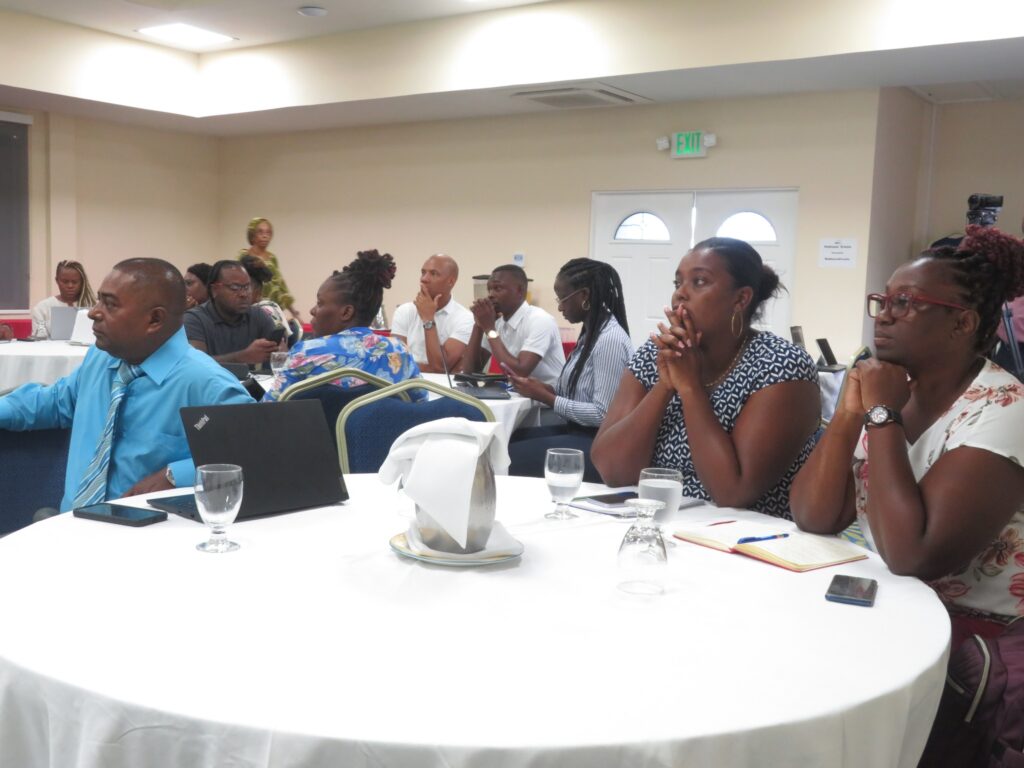
Stakeholders discuss strategies for the future of food security and nutrition
The Ministry of Agriculture, Lands, Fisheries & Cooperatives and The Food and Agriculture Organization of the United Nations (FAO) successfully concluded the jointly held Food and Nutrition Policy Workshop on 17 September 2024 at the Radisson Hotel in Grenada, in which several productive discussions and ideas were generated. The engaging and impactful event brought together a diverse group of 32 stakeholders, including policymakers, health professionals, nutrition experts, international institutions, research and NGO institutions to discuss the future of food security and nutrition.
The workshop focused on key issues facing food and nutrition policy today, including the need for sustainable food systems, equitable access to nutritious foods, and strategies for addressing chronic diseases such as obesity through better dietary interventions. The event featured a keynote speech by Mr. Isaac Bhagwan – Permanent Secretary for Agriculture and a series of interactive sessions led by Mr. Michael Church, former Minister of Agriculture in Grenada and Mr. Roberto Telleria, FAO Policy Officer for the Caribbean Region.
Mr. Church emphasized the role of government in driving policy changes to make food safe, healthy, and affordable to all, while Mr. Telleria highlighted the importance of innovative approaches to food policy that prioritize nutrition and equitable access to food in all parishes of Grenada. During his keynote speech, Mr. Bhawan asked for dialogue and to create actionable strategies to improve food systems at parish and national levels.
Three breakout groups were formed to discuss a variety of topics ranging from school nutrition programs to the importance of local agriculture and food sustainability. The first group discussed food security and access addressing sustainable agriculture practices. The second group discussed nutrition and public health by analyzing the role of food and nutrition in preventing chronic diseases and promoting better nutrition. Finally, the third group discussed social protection schemes highlighting that government programs are needed to reduce poverty, vulnerability, and social exclusion by providing support to individuals and families, particularly those who are disadvantaged or at risk.
Subsequently, a plenary discussion took place focusing on strategies for integrating nutrition and food security into government programmes and initiatives. The workshop concluded with a call to action for continued collaboration across sectors to ensure that the policies discussed are implemented effectively at the parish and national levels. FAO committed to further supporting these efforts by providing resources, fostering ongoing dialogue, and advocating for evidence-based nutrition policies.







